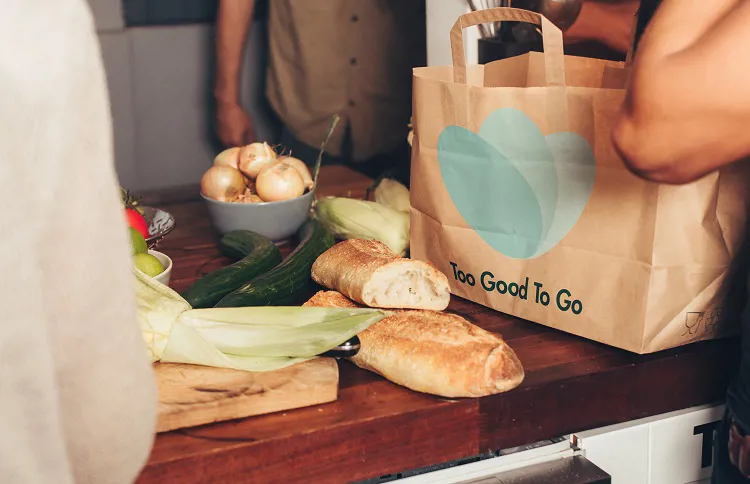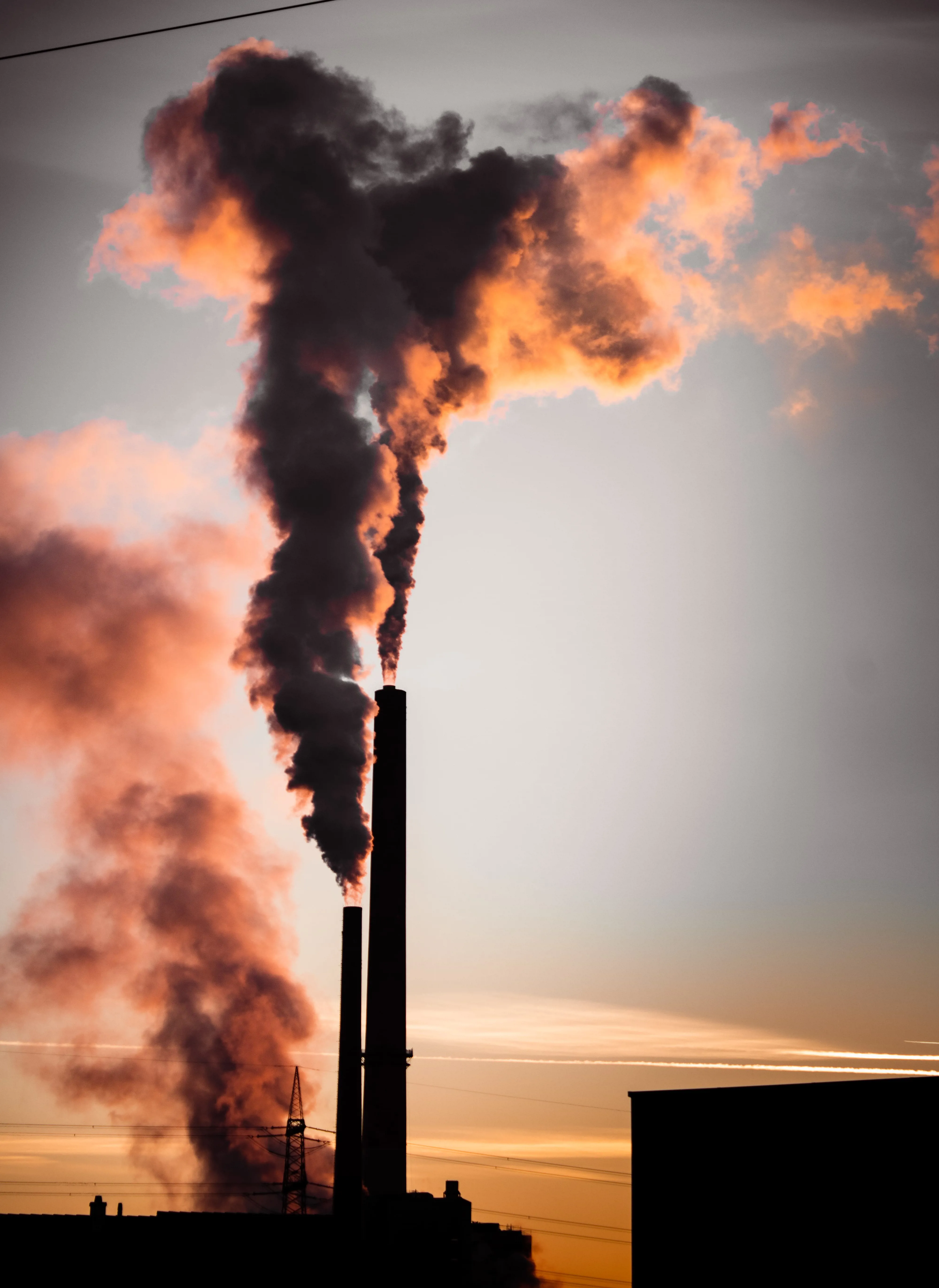Let’s start with this mind-blowing statement:
Food waste contributes more to climate change than air travel and while 800 million people in the world go hungry, we waste one third of the food we grow.
While you’re taking that in, consider the fact that if food waste was a country, it would account for the third highest emissions globally (behind the US and China).
It’s a huge problem in the UK and across the world.
That’s why we were really keen to hear from Jamie Crummie, one of the founders of Too Good To Go, an organisation whose purpose is to reduce food waste. Jamie joined us on our Climate Heroes podcast.
How did TooGoodtoGo get started?
Jamie’s inspiration in setting up Too Good To Go came from an event where the menu was created from rescued food that had been thrown out as waste by companies.

As he tells our CEO Bruce Bratley:
“They put on this incredible spread. And it got me thinking how can we rescue this food before it hits the bin?”
The Too Good To Go app was the answer, and since 2016, 330 million meals have been re-distributed via the app.
How do Food Distribution Apps work?
It’s a simple concept - if a retailer or restaurant has food they haven’t sold, rather than throwing it out, the Too Good To Go app offers it for sale at a reduced price in the form of ‘Surprise Bags’. The company gets some contribution to the cost of the food, reduced business waste costs and genuine sustainability impact.
As Jamie highlights, food waste is unpredictable so by offering the Surprise Bags, businesses can sell off whatever food they have left over or approaching a Use By date.

“It's a win for our consumers, who are able to get food at a price which is potentially more appropriate for them. It's also a win for businesses, they get to reduce their waste disposal costs, but they also get to recover some of the sunk costs of those ingredients. And ultimately, it's a win for the planet because none of this food is going to waste”
We’re already fans of the app here at First Mile but for the purposes of research (and a second lunch…), our Producer James did some user testing.
Here's how it works:
After putting your location in the app, you see a list of food businesses ranging from the local bakery through to a high street coffee chain or a supermarket. James selected Pret a Manger, a First Mile customer and picked up a hot food Surprise Bag. He unpacked it live in the podcast studio. Here’s what he got:
- One pot of chicken laksa soup
- A portion of macaroni cheese with prosciutto
- A Swedish meatball hot wrap
Total cost = £4 for items that would have a retail price of £12. What a deal! Food that would have been discarded was instead taken home for dinner. This Surprise Bag included three meat dishes, but app users can choose from vegetarian or vegan offers too.
The app is used in 18 countries and with the addition of Australia this year, it will cover three continents.
How does food redistribution avoid carbon emissions?
When Jamie says “our whole motto is we dream of a planet with no food waste” we’re cheering him on – our ethos is all about reducing waste before anything gets to the point of being collected by First Mile to be recycled.
Even in a perfect world, there will always be some food ‘waste’ - eggshells, potato peelings, fruit peel for example. The aim should be to make sure edible food never ends up in the bin.
Jamie explains with wonderful clarity why wasted food has such a high impact on emissions:

“When we're talking about the environmental impact and the climate impact of food, we're talking about the whole journey that this food has gone on.
So when we're wasting food, we're wasting the land which has been converted to grow our food.
We're wasting the labour which has been used to harvest our food, the water which has been used to grow it.
It's a waste of the fertilizers and all of those associated emissions that come with commercial fertilizers and the impact that's having on our water system.
It's then a waste of the fuel which is used to transport our food all the way from farm through to fork. It's a waste of the electricity and the emissions associated with refrigerating our food and that can be in the supermarkets, in our own homes, as well as in distribution centres and further down the supply chain.
And so, really, when we're wasting that food, it isn't purely the plate of food in front of us, it's all of those emissions which have gone into producing it.
When you're able to rescue food, those emissions haven't been made in vain, but also by rescuing food you're then not buying additional food as well, and so you're having this compounded positive impact on the environment.”
How can businesses reduce food waste?
Jamie talks about the food waste hierarchy that companies can use as a template for reducing food waste, where recycling is the last resort:
- Food sold at full price
- Reduced and sold via an app like Too Good To Go
- Donated to charities
- Used as animal feed
- Recycled with a trusted partner like First Mile, where food waste is used to produce green energy
What are the rules on food waste in the Simpler Recycling reforms?
Food waste recycling becomes mandatory next year with the introduction of the Simpler Recycling reforms in March. This upcoming legislation is about making it easier for people to recycle, by standardising services across the country. Whether it’s your home, your business or your place of work, you will have to recycle food separately and make sure it’s not in with general waste.
If food waste goes to landfill (which can happen with general waste), it decomposes under uncontrolled conditions and releases methane, which is twenty-three times more dangerous to the planet than carbon dioxide.
And there’s an extra incentive for businesses to get this right and to start recycling food now. Not only is it good for the environment, but at First Mile, food recycling bins or sacks are cheaper than general waste.
Get in touch today to talk to a food recycling expert and save money on waste costs.
Why choose First Mile for food recycling?
When a business signs up to our food recycling service they get plenty of help setting up the process. Every organisation has different challenges, but we’ve been doing this long enough with a range of clients to know what works, and we offer a flexible service to accommodate those differences:

- Recycling collections up to three times a day seven days a week
- 24/7/365 support from a specialist commercial waste team
- Extras like compliance certificates and weighing
- Point of recycling posters to educate and encourage
To get employees on board with food recycling, we’ve learnt via our clients that you have to make it easy for them. Education helps, but practical measures like plenty of food waste bins for food disposal should be first on the list.
Jamie Crummie was an inspiring guest, someone who is making a positive and measurable change, a real Climate Hero. We’ll leave the last word to him:
“Myself and my co-founders started this because we dream of a planet with no food waste. We exist because we want to inspire people and empower people, as well as businesses, to actively do something to reduce food waste”
Listen to the full podcast episode here and download the Too Good To Go app for free via their website. If you’d like more information on how your business can easily recycle food waste with First Mile, you can find out more here or get in touch to talk with our team.


